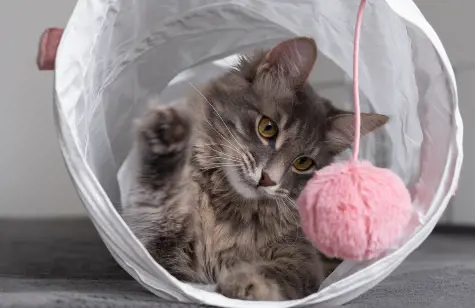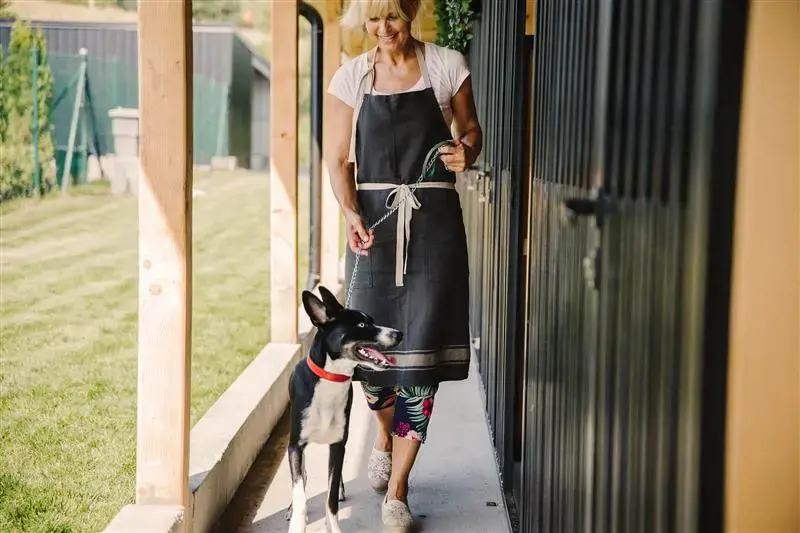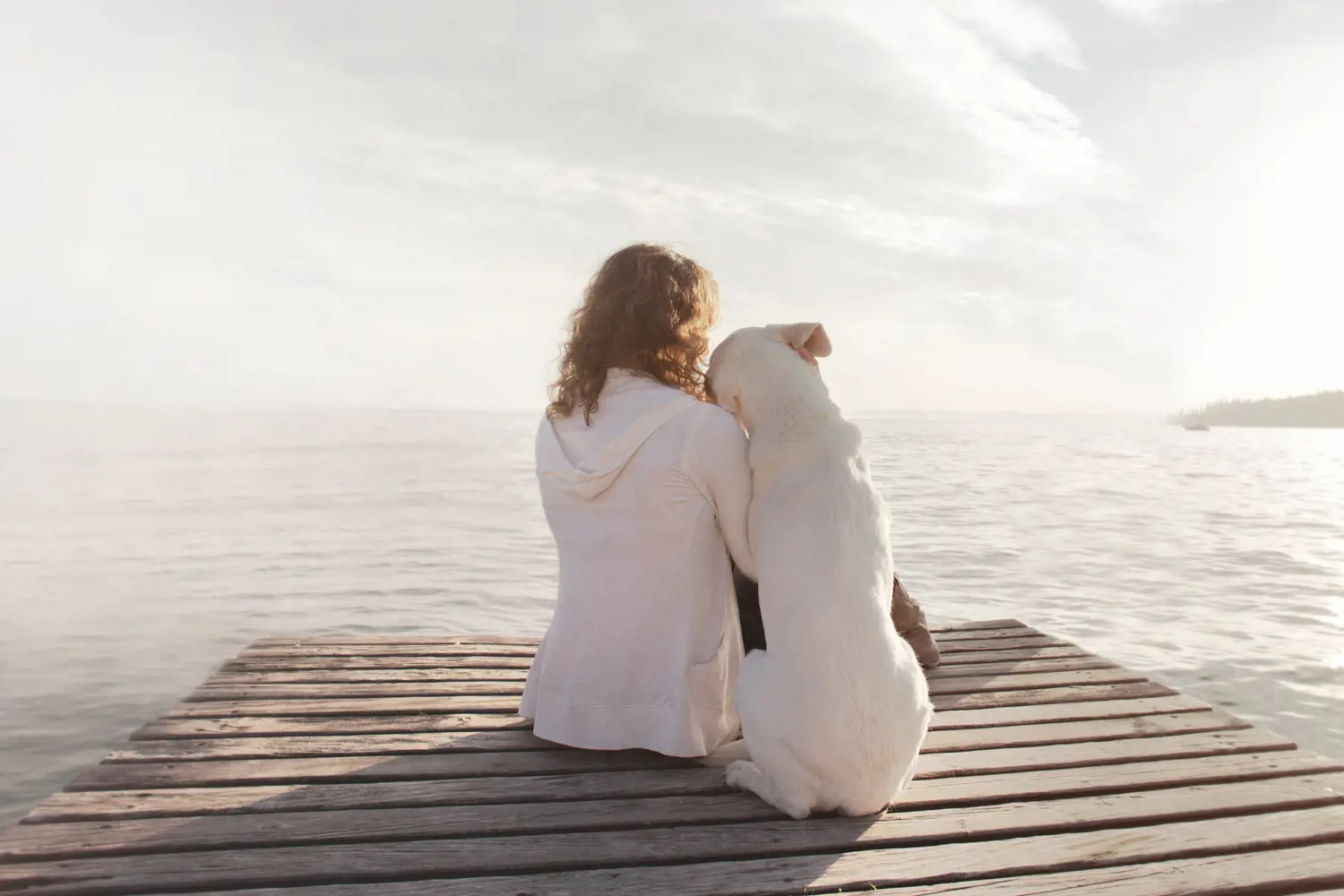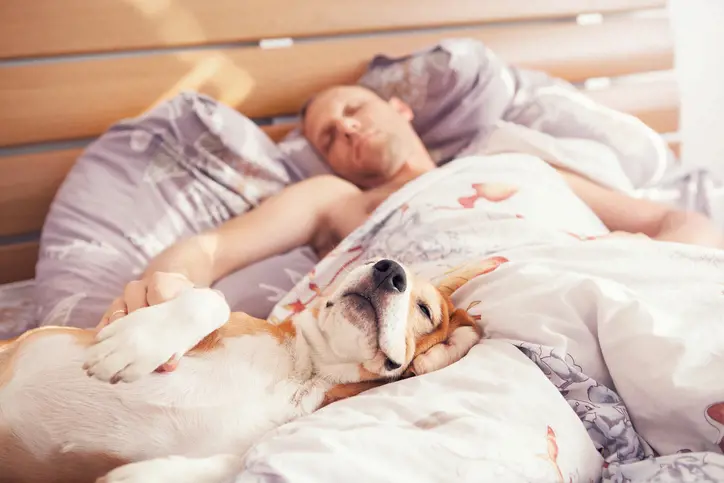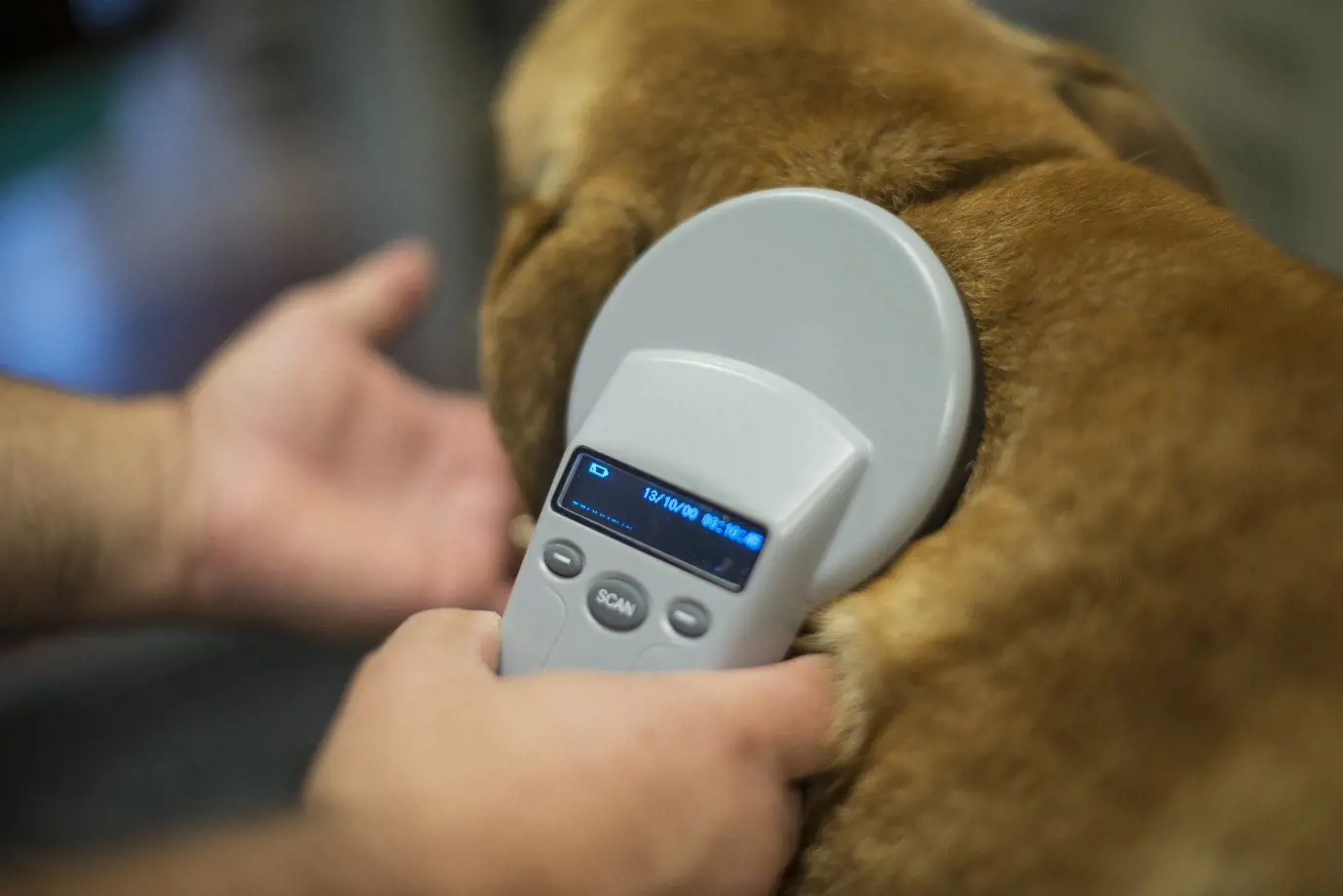Do Yorkshire Terriers shed? The truth about Yorkie hair
14th February, 2024
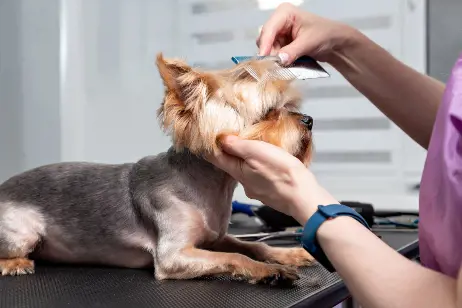
Are you considering adding a Yorkshire Terrier, or Yorkie, to your family? One question that often arises when considering this popular breed is, "Do Yorkshire Terriers shed?" Shedding can be a significant factor to consider, especially for individuals with allergies or those who prefer a low-maintenance grooming routine.
In this blog, we will explore the shedding habits of Yorkshire Terriers, debunk common myths, and provide you with valuable insights and tips on how to care for your Yorkie's luscious locks. So, let's get started and discover the truth behind Yorkie shedding!
Understanding Yorkie hair: How it differs from fur
To truly understand the shedding patterns of Yorkshire Terriers, we must first distinguish between hair and fur. While these terms are often used interchangeably, they actually refer to distinct characteristics of a dog's coat.
Fur, typically found in breeds known for shedding, consists of thick, coarse, and short strands. These coats have a hair growth cycle that includes periods of shedding, often in response to seasonal changes.
On the other hand, Yorkies have dog hair, which is finer, longer, and more like human hair. This silky hair grows continuously, similar to our own, without distinct shedding seasons.
The low-shedding nature of Yorkshire Terriers
Now that we understand the unique characteristics of Yorkie hair, let's answer the burning question: Do Yorkshire Terriers shed?
The short answer is yes, but not to the same extent as breeds with fur. Yorkshire Terriers are considered low shedders due to their single-layered hair that grows continuously. While they do shed some hair, it is minimal and less noticeable compared to breeds with fur coats.
Yorkie shedding is often described as a gentle and continuous process. The loose hairs tend to fall back into the coat, making shedding less visible in your home.
You are more likely to notice shedding when you brush or bathe your Yorkie, as this is when the loose hairs are removed from their silky coat.
Factors influencing Yorkie shedding
Despite being low shedders, there are several factors that may affect the shedding patterns of Yorkshire Terriers. It's important to consider these factors to better understand and manage your Yorkie's coat:
1. Genetics and individual variation
Just like humans, dogs have unique genetic traits that can influence their shedding patterns. While Yorkshire Terriers, as a breed, are known for being low shedders, individual variation can occur. Some Yorkies may shed slightly more than others due to genetic factors.
2. Grooming practices
Regular grooming plays a crucial role in managing your Yorkie's shedding. Proper brushing removes loose hairs and prevents matting, which can lead to more noticeable shedding. Establishing a consistent grooming routine, including brushing sessions, can help minimise shedding and maintain a healthy coat. Check out our blog on tips on how to care for your dog's coat.
3. Health and nutrition
A Yorkie's overall health and nutrition can impact their shedding patterns. Dogs with underlying health issues or nutritional deficiencies may experience abnormal shedding.
Ensuring your Yorkie receives a balanced diet, appropriate for their age and size, can promote a healthy coat and minimise excessive shedding.
4. Seasonal changes
While Yorkies do not have distinct shedding seasons like breeds with fur, some pet owners may notice slight variations in shedding during seasonal changes.
Factors such as temperature, daylight hours, and hormonal fluctuations can influence a Yorkie's shedding patterns, albeit to a lesser extent than furrier breeds.
5. Stress and anxiety
Stress and anxiety can also affect a Yorkie's shedding patterns. Dogs, including Yorkies, may shed more hair during periods of stress or when experiencing significant life changes. Providing a calm and stable environment for your furry friend can help minimise stress-related shedding.
Grooming the Yorkshire Terrier: Tips and techniques
Proper grooming is important for maintaining the health and appearance of your Yorkie's coat. Here are some tips and techniques to help you keep your Yorkie looking their best:
1. Regular brushing
Brushing your Yorkie's hair is crucial for preventing tangles, matting, and excessive shedding. Use a high-quality brush with soft bristles or a slicker brush specifically designed for long-haired breeds. Regular brushing removes loose hairs and distributes natural oils, keeping the coat healthy and shiny.
Pro tip: Make brushing sessions a positive and bonding experience for you and your Yorkie. Use treats, praise, and gentle strokes to create a positive association with grooming.
2. Bathing and coat maintenance
While Yorkies do not require frequent baths, regular bathing helps remove dirt, debris, and loose hairs from their coat. Use a delicate shampoo formulated for long-haired breeds and rinse thoroughly to prevent skin irritation. After bathing, ensure proper drying to avoid matting and tangling.
Pro tip: Consider using a leave-in conditioner or detangling spray to keep your Yorkie's hair soft and manageable between baths.
3. Trimming and styling
Yorkshire Terriers have a variety of coat styles to choose from, depending on personal preference and lifestyle. Longer show coats require more frequent brushing and maintenance, while shorter cuts, such as the popular "puppy cut," offer easier upkeep.
Consult a professional groomer to determine the best style for your Yorkie and their specific needs.
4. Eye and ear care
Yorkies are known for their beautiful, expressive eyes and distinctive ears. Proper eye and ear care is necessary to prevent infections and discomfort.
Regularly clean your Yorkie's eyes with a damp cloth to remove tear stains and debris. Additionally, gently clean their ears using a veterinarian-approved ear cleaner to maintain cleanliness and prevent wax buildup.
Pro tip: When cleaning your Yorkie's ears, be gentle and avoid inserting anything deep into the ear canal to prevent injury.
5. Nail trimming
Regular nail trimming is vital for your Yorkie's comfort and overall well-being. Long nails can cause discomfort while walking and increase the risk of injury or joint problems.
If you are not confident in trimming your Yorkie's nails, consult a professional groomer or veterinarian for guidance.
Pro tip: Introduce nail trimming gradually and use positive reinforcement to help your Yorkie feel comfortable and relaxed during the process.
Yorkies and allergies: The hypoallergenic dog myth
Yorkshire Terriers are often considered hypoallergenic dogs, making them a popular choice for individuals with allergies or dog allergies. However, it is important to understand that no dog breed is completely hypoallergenic.
Allergies to dogs are primarily caused by a specific protein found in their dander (dead hair and skin cells), saliva, and urine. While Yorkies have minimal pet dander compared to breeds with fur, they still produce allergens that can trigger allergic reactions in sensitive individuals.
If you or a family member has allergies, it is crucial to spend time with a Yorkie before bringing one into your home. This allows you to assess individual sensitivity and determine if a Yorkie is a suitable companion.
Regular grooming, including brushing and bathing, can help reduce allergens in your home and minimise allergic reactions.
Pro tip: Consult with an allergist or veterinarian for personalised advice on managing allergies and choosing the right dog breed for your specific needs.
Additional tips for Yorkie coat health and maintenance
Here are some additional tips to ensure the health and maintenance of your Yorkie's coat:
- Proper nutrition: Feed your Yorkie a balanced and high-quality diet that meets their nutritional needs. Consult with your veterinarian for recommendations on the best food options for your furry friend's coat health.
- Regular veterinary check-ups: Schedule regular check-ups with your veterinarian to monitor your Yorkie's overall health, including their coat and skin condition. Your vet can provide guidance on any specific concerns and recommend proper treatment if necessary.
- Environmental considerations: Create a comfortable and stress-free environment for your Yorkie. Avoid exposing them to extreme temperatures or harsh weather conditions, as these factors can affect their coat health.
- Supplements for coat health: Consult with your veterinarian about adding supplements, such as Omega-3 fatty acids, to your Yorkie's diet. These supplements can promote a healthy coat and skin.
- Stress management: Yorkies are sensitive dogs and can be prone to stress and anxiety. Create a calm and predictable routine for your Yorkie, provide mental stimulation, and offer plenty of love and attention to keep them happy and stress-free.
Conclusion: Embrace the unique beauty of Yorkie hair

In conclusion, Yorkshire Terriers are low shedders due to their unique hair structure. While Yorkies shed some hair, it is minimal and less noticeable compared to breeds with fur. Regular grooming, including brushing, bathing, and coat maintenance, is important to keep your Yorkie's coat healthy and minimise shedding.
Remember, no dog breed is completely hypoallergenic, including Yorkies. If you or a family member has allergies, spend time with a Yorkie before bringing one into your home to assess individual sensitivity. Consult with professionals, such as allergists and veterinarians, to determine the best approach for managing allergies and choosing the right dog breed for your family.
With proper care and attention, your Yorkshire Terrier's silky and luscious coat will be a source of pride and joy. Embrace the unique beauty of Yorkie hair and enjoy the wonderful companionship they bring to your life.
Additional information: To ensure the well-being of your beloved Yorkshire Terrier, consider getting dog insurance. Contact us on 0330 102 5748 or visit our website to get an insurance quote for your furry friend.
Helpful Pages
Recent Posts
Pet Insurance Quote
- 98% claims paid *
- Claims paid directly to vets
- 24/7 vet video consultations
- Interest free monthly payments
